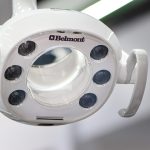Crafting a compelling resume is akin to orchestrating a flawless event; both require meticulous attention to detail, creativity, and an understanding of your audience. In the competitive arena of events management, where experience and innovation are paramount, having an exceptional resume is your golden ticket to landing that coveted position. Here’s how to ensure your resume not only stands out but resonates with potential employers.
1. Tailor Your Profile
A generic resume will likely be overlooked in a sea of applications. Instead, carve out a unique profile that reflects both your personality and professional ethos. Begin with a succinct summary that encapsulates your experience, skills, and what you bring to the table. Consider including:
- Key Achievements: Highlight noteworthy events you’ve managed, numbers that reflect your success, and any accolades received.
- Core Competencies: List skills that are directly relevant to the role—think budget management, vendor negotiation, and client relations.
2. Showcase Your Experience
When detailing your work history, think of it as telling a story. Each role should narrate a journey, demonstrating growth and adaptability. Use bullet points for clarity, but don’t shy away from weaving in narrative where it adds value. Focus on:
- Diverse Roles: Highlight various positions held, from entry-level to managerial, showcasing your versatility.
- Impactful Results: Quantify your successes—“Increased attendance by 30%” or “Managed a budget of £200,000” provide concrete proof of your capabilities.
3. Highlight Relevant Skills
An events manager wears many hats, so your skills section should be a vibrant tapestry of your talents. Consider categorising them into technical and soft skills:
- Technical Skills: Proficiency in event management software, social media marketing, and data analysis.
- Soft Skills: Communication, problem-solving, and leadership—these are the traits that can set you apart in a client-facing role.
4. Include Certifications and Training
In a field that values ongoing education, relevant certifications can give you an edge. Whether it’s a diploma in event management or training in health and safety regulations, this section can bolster your credibility. List any:
- Professional Development Courses: These demonstrate your commitment to the industry.
- Industry Certifications: Such as CMP (Certified Meeting Professional) or CSEP (Certified Special Events Professional) that enhance your qualifications.
5. Design with Purpose
The aesthetics of your resume can be just as important as the content. An eye-catching design can draw attention, but it shouldn’t compromise readability. Opt for:
- Clean Layout: Use headings and subheadings for easy navigation, and don’t clutter with excessive graphics.
- Consistent Formatting: Stick to one or two fonts, and ensure uniformity in bullet points and spacing.
Crafting Your Unique Narrative
As you embark on the journey of job hunting, remember that your resume is not merely a list of jobs; it’s a personal narrative that encapsulates your career thus far. Each section should work in harmony to portray a candidate who is not only qualified but also passionate about events management.
With the right template and approach, you can create a resume that truly stands out. CVPortal continues to bring you a plethora of top-notch resume references, ensuring you have all the tools necessary for a successful job search. Embrace the process, and let your unique story shine through in every application.


